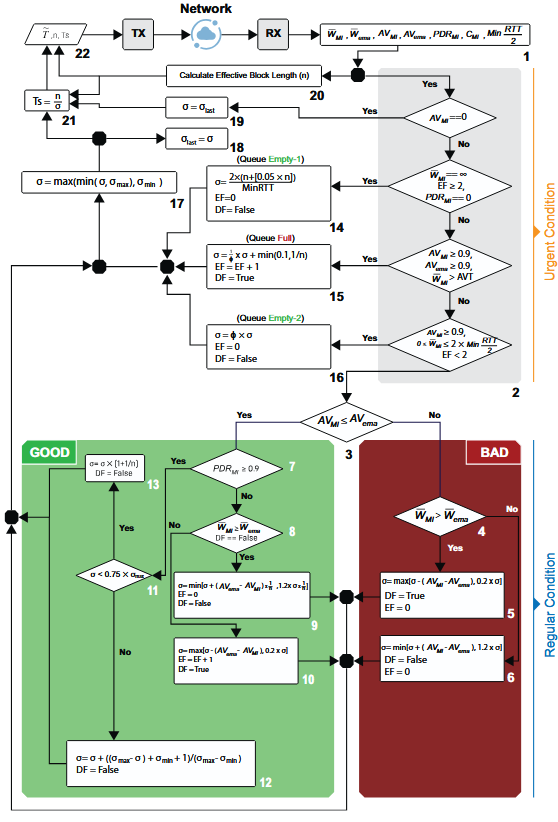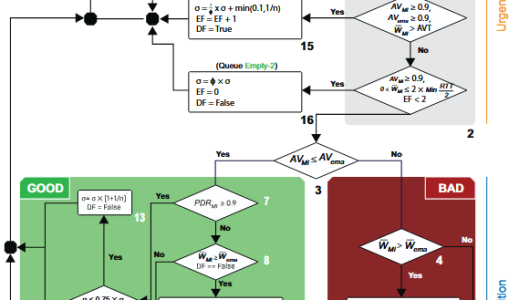Age Of Information Based Flow Control In Communication Networks
This thesis presents a comprehensive investigation into the concept of Age of Information (AoI)—a modern performance metric that measures the freshness of data in communication systems. Unlike traditional metrics such as throughput or delay, AoI directly captures the timeliness of information, which is essential for applications in the Internet of Things (IoT), cyber-physical systems, and next-generation communication networks.
The work begins with experimental studies of AoI behavior over bandwidth-limited links, both in emulated environments and in real-world applications. The results confirm that empirical measurements closely match theoretical expectations, establishing a strong foundation for further analysis. AoI performance is then explored across diverse network technologies, including WiFi, LTE, 3G, 2G, and Ethernet, highlighting how different link characteristics influence data freshness.
A key challenge identified during this stage is the presence of synchronization errors in AoI measurements, which can distort results. This thesis introduces a solution for correcting synchronization errors, ensuring accurate evaluation of AoI in both experimental and practical scenarios.
To deepen the analysis, the study extends to IoT communication protocols—namely TCP, UDP, and WebSockets—to evaluate how AoI behaves under varying protocol overheads and delivery guarantees. Moreover, the thesis introduces a deep reinforcement learning (DRL)-based approach that can dynamically minimize AoI without requiring prior knowledge of network conditions. This learning-based method demonstrates that intelligent, adaptive algorithms can enhance freshness even in unpredictable environments.
Building upon these insights, the thesis proposes a novel protocol:
A³L-FEC (Age-Aware Application Layer Forward Error Correction).
-
A³L-FEC operates at the application layer of the OSI model and introduces role-based flow control to prevent age violations while improving data freshness.
-
By leveraging Forward Error Correction (FEC) in combination with UDP, the protocol ensures reliable transmission of timely updates even under challenging network conditions.
-
Two protocol variations are developed:
-
A³L-FEC-FSFB (Fixed Sampling, Fixed Blocklength) for applications with steady update patterns.
-
A³L-FEC-VSVB (Variable Sampling, Variable Blocklength) for adaptive systems where sampling intervals and blocklengths must change according to network state.
-

The thesis conducts extensive evaluations of A³L-FEC in multiple environments:
-
Mininet-based emulation, to compare against TCP-BBR, a state-of-the-art congestion control protocol.
-
MATLAB simulations, to benchmark against ACP+, an age-control policy from the literature.
The results clearly demonstrate that A³L-FEC significantly outperforms both TCP-BBR and ACP+, effectively reducing age violations and ensuring fresher data delivery.
Overall, this work contributes to both the theoretical understanding and practical implementation of AoI-driven communication, offering a new pathway for designing network protocols optimized for data freshness—a critical requirement for IoT, autonomous systems, and mission-critical communication networks.
For more information, please click here!
or

